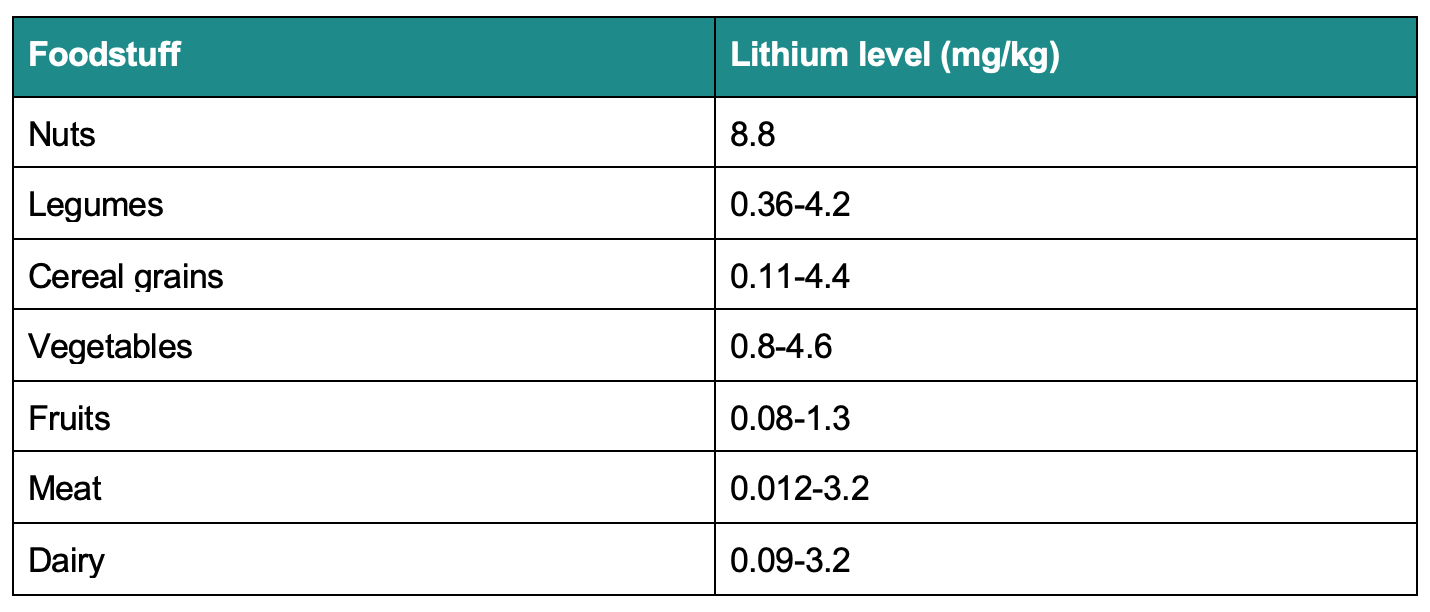What is lithium
Lithium is an alkali metal, as is sodium, potassium and magnesium. Lithium is easily absorbed by plants and as such is found in low level amounts in plants and animals. Lithium has a similar ion structure as sodium. Mechanisms that transport sodium across cellular membranes also transport lithium. Lithium affects the flow of sodium through nerve and muscle cells in the body.
Lithium health benefits
Lithium aids in brain health and has been used as a mood stabilizer, helping manage mood swings. A recent study at the Harvard Medical School found that a lithium deficiency could be the root cause of Alzheimer. “Lithium is dynamically regulated in the brain and contributes to cognitive preservation during ageing. Of the metals we analyzed, Lithium was the only one that was significantly reduced in the brain in individuals with mild cognitive impairment (MCI).” See Nature: Lithium deficiency and the onset of Alzheimer’s disease
After 10 years of study, the researchers further concluded lithium could prevent, treat and reverse the effects of AD: “These findings reveal physiological effects of endogenous Lithium in the brain and indicate that disruption of Lithium homeostasis may be an early event in the pathogenesis of AD. Lithium replacement with amyloid-evading salts is a potential approach to the prevention and treatment of AD.”
Lithium natural food sources
Lithium based drugs can be toxic, are available only by prescription, and should be used only under a physician’s care, however, here are ten natural food sources that contain traces of lithium:
- lentils – contain one of the highest amounts of lithium found in food.
- potatoes – are rich in lithium
- spinach – is rich in vitamins, minerals, and antioxidants
- avocados – are packed with monounsaturated fats, fiber, Vitamin K and potassium
- cabbage – is rich in vitamins C and K, fiber, and antioxidants
- cauliflower– contains various essential nutrients such as fiber, vitamins C, K, and choline
- tomatoes – provide dietary fiber, antioxidants, and vitamin C
- peas – are rich in vitamins, protein and fiber
- radishes – are rich in Vitamin C, potassium, magnesium and calcium
- carrots – are rich in vitamins and beta-carotene

More about Ralph Teller


